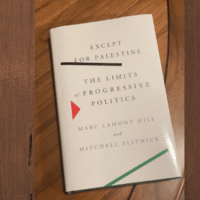-
Behind NATO’s ‘cognitive warfare’: ‘Battle for your brain’ waged by Western militaries
Western governments in the NATO military alliance are developing tactics of “cognitive warfare,” using the supposed threats of China and Russia to justify waging a “battle for your brain” in the “human domain,” to “make everyone a weapon.”
-
Building a movement to shutdown AFRICOM
In 2008, the establishment of the U.S. Africa Command, or AFRICOM, one of the eleven U.S. global command structures, began the new scramble for Africa, an effort by the United States to practice full spectrum dominance over the entire continent.
-
If the United Nations Charter was put to a vote today, would it pass?: The Thirty-Ninth Newsletter (2021)
Each year in September, the heads of governments come to the United Nations Headquarters in New York City to inaugurate a new session of the General Assembly.
-
Reactionary anti-China propaganda not in Canada’s self-interest
Engler: We must reject great-power rivalry and pursue an independent foreign policy
-
U.S. Congress outlines new phase of economic attacks and hybrid war on Nicaragua’s Sandinista government
A House Foreign Affairs Committee hearing on September 21 set out plans for the next phase of the United States’ hybrid warfare on Nicaragua, which aims to destabilize and ultimately overthrow the Central American nation’s leftist Sandinista government.
-
Biden and Xi address UN, juggling differences amid calls for unity on climate and COVID-19
The leaders of the United States and China each pledged to the United Nations General Assembly on Tuesday that they would help press the fight against virulent pandemics and global warming–even as they offered vastly different visions of the world order.
-
The never ending cycle of nuclear insanity
Amidst all of the sensible and sane cries to eliminate nuclear weapons, we are caught in a self-sustaining, self-reinforcing feedback loop. Call it the Death Spiral of Human Annihilation.
-
Eric Schmidt Cashes in on Artificial Intelligence arms race
As the Pentagon drives a hi-tech arms race to maintain its global military superiority, ex-Google CEO Eric Schmidt is the man at the center. Behind The Headlines’ Dan Cohen investigates how the U.S. empire’s drive to control the world using Silicon Valley technology creates the possibility of a devastating war.
-
The Empire’s last stand
The origins of the first Cold War have been hopelessly blurred in the histories. We can watch this time. It is occurring before our eyes.
-
A short, sordid history of brands and warfare
Burger King’s foray into recent conflict in Azerbaijan is part of a historical trend of corporations weighing in–and benefitting from–conflict, writes Tommy Hodgson
-
Pentagon paid the Arms Industry at least $4.4 trillion since 9/11
The top five profiteers were Lockheed Martin, Boeing, General Dynamics, Raytheon, and Northrop Grumman.
-
The U.S. is turning oil-rich Nigeria into a proxy for its Africa wars
Last month, Nigeria’s President Muhammadu Buhari wrote an op-ed in the Financial Times. It might as well have been written by the Pentagon. Buhari promoted Brand Nigeria, auctioning the country’s military services to Western powers, telling readers that Nigeria would lead Africa’s “war on terror” in exchange for foreign infrastructure investment.
-
‘The invasion of Afghanistan was a fraud’: an interview with John Pilger
The Taliban were a convenient target to satisfy a political lust for revenge for 9/11.
-
U.S. escalates threats to Ethiopian and Eritrean sovereignty
The U.S. and its Western European allies have been trying to pass some kind of resolution censuring Ethiopia that will lead towards military intervention, but so far, they have not succeeded. Why? Because China and Russia have been blocking it. They say that this is Ethiopia’s internal affair, and we shouldn’t engage in any undue interference. Everyone is saying the same thing they have been saying all along.
-
China calls for investigation into U.S. massacres of civilians in Afghanistan
On Wednesday, September 1, Chinese Foreign Affairs Ministry spokesperson Wang Wenbin said that the massacres of civilians committed by the US military in Afghanistan during 20 years of occupation and war should be fully investigated.
-
Over two decades, U.S.’s global war on terror has taken nearly 1 million lives and cost $8 trillion
A new report from the Costs of War Project makes staggering estimates for the human and financial costs of the global forever wars.
-
Afghanistan withdrawal is a shock to the Israel lobby
Military occupations excite violent resistance throughout history. The U.S. has given up the fantasy of transforming Afghanistan. This removes Israel’s cover for its occupation and is generating panic among Israel’s friends.
-
Insane U.S. plan to spend billions on weaponizing space makes defense contractors jump for joy—but rest of World cowers in horror at prospect of new arms race leading to World War III
And yet far worse is to come—unless there is a return to the vision of the Outer Space Treaty of 1967. The latter needs to be expanded, U.S. Space Force dismantled, and a full global commitment made to keep space for peace.
-
Except for Palestine: The Limits of Progressive Politics – Book Review
“Except for Palestine” is a remarkable little book. Within it, the authors Hill and Plitnick present the larger picture that the self-proclaimed progressive “universal” values of the United States are argued for in many troubled spots of the world, except for Palestine.
-
John Pilger: Afghanistan, the great game of smashing countries
In 2010, I was in Washington and arranged to interview the mastermind of Afghanistan’s modern era of suffering, Zbigniew Brzezinski. I quoted to him his autobiography in which he admitted that his grand scheme for drawing the Soviets into Afghanistan had created “a few stirred up Muslims”. “Do you have any regrets?” I asked. “Regrets! Regrets! What regrets?” – John Pilger



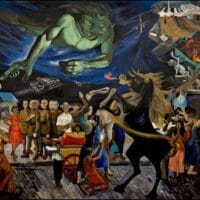
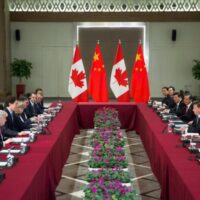

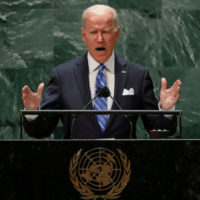



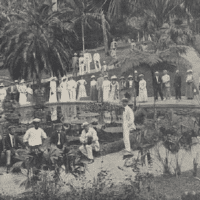




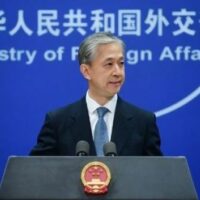


![Weapons are already being developed for the first space war. [Source: thesun.co.uk]](https://mronline.org/wp-content/uploads/2021/09/weapons-are-already-being-developed-for-the-first-200x200.jpeg)
